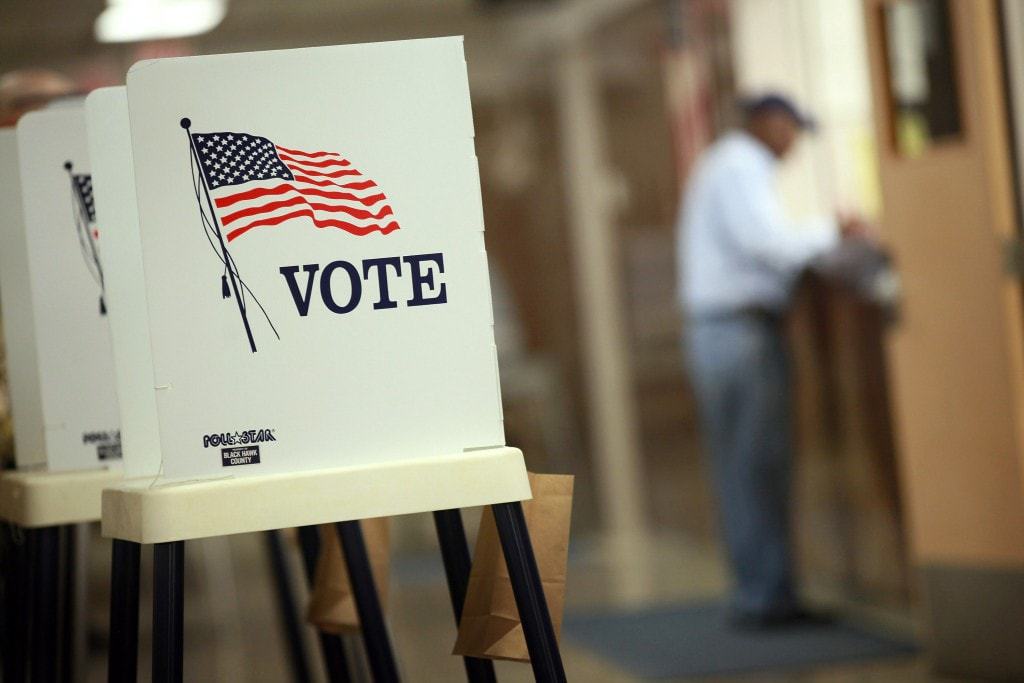Yale Votes and YCC continue advocacy for Election Day off
Administrators have declined requests by Yale Votes and the Yale College Council to make Election Day a University holiday, which they argue would increase voting access for faculty, staff and students.

Yale Daily News
Long lines, lost ballots and limited windows of opportunity characterize student voting experiences at college campuses, and Yale is no exception.
Yale Votes has advocated for years in conjunction with the Yale College Council to make Election Day a University holiday. The groups are motivated in part by these burdens — and because the University claims to promote civic engagement and civil service.
“Students want to vote and be engaged citizens,” Yale Votes wrote in a 2020 proposal explaining why the University should make Election Day a holiday. “It’s not a matter of willingness to participate in our democratic process, but a matter of limits on time & flexibility.”
YV has been working on this issue since their founding in 2018. The organization originally consisted of a coalition of other groups, including the YCC. While YCC has left the coalition and YV has become an independent student organization, the two groups still work together to advocate for increased voting access on campus.
Before 2020’s presidential election, YV along with the YCC’s University Calendar Committee, which works with the University’s official calendar committee on the timing of breaks and university holidays, advocated for Election Day’s designation as a University holiday.
“The committee ultimately rejected the proposal,” Sophie Kane ’24, head chair of YV, stated in an email to the News. “As we understand it, many members of the committee argued that Election Day did not warrant a full day off.”
Despite the calendar committee’s decision that Election Day does not necessitate a full vacation day, multiple other universities do offer their students, faculty and staff the day off. Brown University, Columbia University and Swarthmore College have each designated Election Day a university holiday.
In a written 2020 statement to the Brown community, University Provost Richard M. Locke said that Brown seeks to guarantee that its faculty, staff and students will be able to vote.
“Voting is among the most powerful tools we have as individuals to impact society,” Locke wrote.
Although the University has not made Election Day a holiday, Assistant Vice President for University Life Pilar Montalvo wrote an Oct. 31 email to the student body explaining the available methods of voting and encouraging students to take advantage of them.
Montalvo also emphasized that the University prioritizes involvement in the political process. She then directed students to the Yale Votes website, which is not curated by the University but instead by the students who run the organization.
In response to a question about whether students, staff or faculty face any challenges preventing them from voting, Montalvo directed the News to Yale Votes as a significant resource for voting information.
YV has done significant work to improve voting access on Yale’s campus since its founding, which was necessary in part because of falling student voting numbers between the 2016 election and the 2018 midterm elections.
According to the YV Election Day proposal, only 56.7 percent of eligible students voted in 2016. In 2018, that number dropped to 46.8 percent.
Students, faculty and staff at Yale who are part of traditionally disenfranchised groups often face more troubles voting than others, in part because they may not have the time or resources to cast their ballot on Election Day. YV and YCC recognize this and keep the needs of disenfranchised communities in mind when advocating for voting reform.
According to Viktor Kagan ’24, who is part of the YCC team working with YV on increasing access to voting, their efforts are focused on shining light on disenfranchised groups who are impacted by the decision to not make Election Day a University holiday, such as “the Yale facilities worker who is working for the entire Election Day period.”
Some students have already faced difficulties casting their ballot as a result of Election Day not being a holiday.
One student, Mia Toledo-Navarro ’24, said that voting can be difficult for her due to her busy schedule.
“As a student who works multiple part-time jobs, Tuesdays aren’t really days I have any free time,” Toledo-Navarro said.
Toledo is not alone in this issue. The YV proposal shared a study conducted by the Tufts Center for Information & Research on Civic Engagement and Learning. According to the study, 47 percent of “youth with college experience” have trouble voting due to business or conflicts on Election Day.
YV believes that turning Election Day into a University holiday would eliminate this disparity.
While YV and YCC have recently focused their efforts on more attainable short-term goals to increase ease of voting on campus, following the 2022 election they will both be preparing long-term advocacy efforts to secure Election Day as a University holiday.
The 2022 midterms will take place on Nov. 8.







